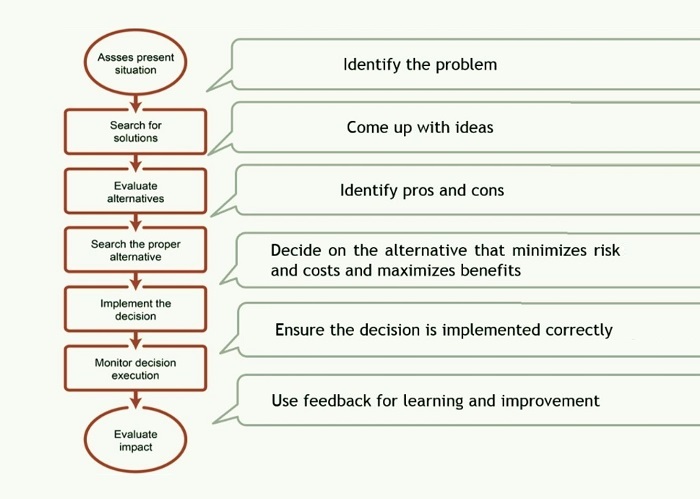As a business owner, the ability to make rational decisions is crucial for success. Rationality involves thinking logically, objectively, and critically, enabling you to navigate the complex landscape of entrepreneurship. In this blog post, we will explore 22 practical tips to enhance your decision-making skills, enabling you to make better choices that drive your business forward.
1. Define Your Goals Clearly
Begin by clearly defining your business goals. Set specific, measurable, attainable, relevant, and time-bound (SMART) objectives. Clear goals provide a rational framework for decision-making, ensuring that each choice aligns with your long-term vision.
2. Gather Relevant Information
Collect comprehensive and relevant information before making decisions. Conduct market research, analyze industry trends, and seek insights from reliable sources. Informed decisions based on factual information are more likely to yield favorable outcomes.
3. Identify and Assess Risks
Consider potential risks associated with each decision. Evaluate their likelihood and potential impact on your business. Develop contingency plans and risk mitigation strategies to make rational choices that minimize adverse consequences.
4. Avoid Hasty Decisions
Impulsive decisions can lead to costly mistakes. Take time to gather information, analyze alternatives, and consider potential outcomes. Avoid making decisions under pressure and give yourself space for rational thinking.
5. Seek Diverse Perspectives
Encourage a culture of open communication within your business. Seek input from employees, mentors, and industry experts to gain diverse perspectives. This approach broadens your understanding and enhances your ability to make rational decisions.

6. Analyze Costs and Benefits
Perform a cost-benefit analysis for each decision. Evaluate both short-term and long-term implications, including financial, operational, and strategic aspects. Rational decision-making involves weighing the potential benefits against the costs involved.
7. Use Data and Analytics
Leverage data and analytics to support your decision-making process. Collect and analyze relevant data to identify patterns, trends, and insights. Utilize tools and technologies to make data-driven decisions, minimizing biases and maximizing rationality.
8. Consider Opportunity Costs
Every decision comes with an opportunity cost—the value of the best alternative forgone. Evaluate the potential gains and losses associated with different options to make rational choices that maximize your overall business value.
9. Foster a Learning Culture
Encourage continuous learning and personal development within your organization. Provide opportunities for employees to enhance their skills and knowledge. A culture of learning fosters rational thinking and empowers individuals to make informed decisions.
10. Practice Scenario Planning
Anticipate different scenarios and plan for contingencies. Consider best-case, worst-case, and most-likely scenarios when making decisions. This proactive approach enables you to respond rationally to changing circumstances.
11. Consult Trusted Advisors
Seek advice from trusted advisors, such as mentors, industry veterans, or consultants. Their experience and expertise can provide valuable insights and perspectives that aid rational decision-making.
12. Balance Intuition and Analysis
While rational decision-making involves analysis, intuition also plays a role. Develop your intuition by combining it with logical analysis. Consider your gut feelings, but always back them up with rational thinking and supporting evidence.
13. Prioritize High-Value Decisions
Identify decisions that have a significant impact on your business and prioritize them. Allocate sufficient time and resources to analyze these decisions thoroughly. Rationality is particularly crucial when dealing with high-value choices.
14. Review Past Decisions
Regularly review your past decisions to learn from them. Evaluate their outcomes, identify successes, and acknowledge mistakes. This retrospective analysis enhances your rationality skills and improves future decision-making.
15. Balance Short-Term and Long-Term Considerations
Consider both short-term gains and long-term sustainability. Avoid making decisions solely based on immediate benefits.



